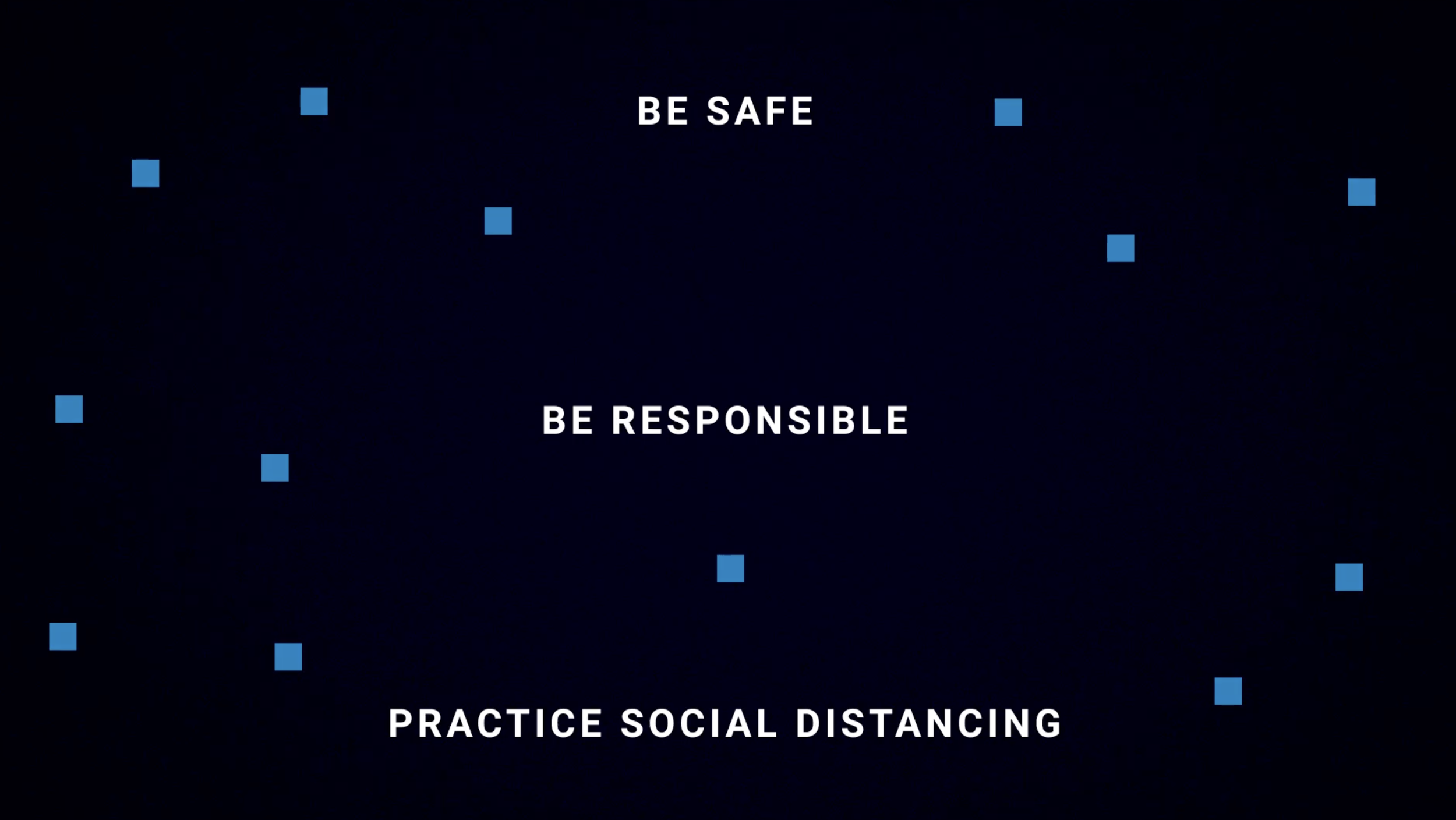Case Study/
Learning Never Stops
Navigating the
Covid-19 Pandemic through Digital Innovation & Strategic Communications
During the unprecedented challenges posed by the COVID-19 pandemic, the Communications team at Hamad Bin Khalifa University (HBKU) played a pivotal role in ensuring the continuity of the university's operations and engagements. Through a swift digital transformation, the team successfully maintained seamless communication with internal and external stakeholders, supporting the university's academic, research, and community initiatives.
HBKU has been at the forefront of promoting continuous learning and pioneering research, especially during the challenges posed by the COVID-19 pandemic. The university's commitment to maintaining a high standard of education and research excellence is evident in its swift transition, ensuring that learning and research never stops.
Transition to Online Learning: HBKU promptly moved its academic programs online, utilizing advanced digital platforms to deliver courses and lectures, ensuring that students' education continued seamlessly.
Research Initiatives: Despite the pandemic, HBKU maintained its research momentum, focusing on areas critical to understanding and combating COVID-19. This included work by the College of Health and Life Sciences (CHLS) and Qatar Biomedical Research Institute (QBRI), among others, contributing valuable insights into the virus's behavior, treatment, and prevention.
Virtual Conferences and Seminars: To foster academic and research collaboration, HBKU organized numerous virtual conferences and seminars, bringing together experts from around the globe to share knowledge and discuss advancements in various fields.
Support for Students and Researchers: HBKU provided comprehensive support for its students and researchers, ensuring they had access to necessary resources and tools to continue their studies and research projects effectively.
Role of HBKU Communications in Supporting Continuous Learning and Research
While HBKU Communications had developed a fully online collaborative infrastructure prior to the pandemic using Wrike management system, Google Drive, among other tools, the fully remote working environment tested the true value of these investments. Previously, these tools complemented and accelerated work, supporting a team based primarily in a single location. The pandemic's onset proved these digital tools' worth, as they became central to maintaining productivity and continuity when physical office operations were disrupted. This shift highlighted the foresight in adopting such technologies, demonstrating their effectiveness in a fully remote working scenario.
The Communications team at HBKU played a pivotal role in supporting continuous learning and research efforts, effectively managing the challenges posed by the COVID-19 pandemic through strategic communication strategies and digital initiatives:
Deploying Crisis Communication Methods and Protocols: In coordination with Ministry of Public Health in Qatar, Qatar Foundation and University Crises Team, we have depolyed our crises communication protocols to push around-the-clock updates, developed an online portal with live updates, and implemented SMS and email notifications to ensure the HBKU community, particularly students, remained informed about COVID-19 matters, regulations and minimize the spread of misinformation.
Ensuring Continuity of the Enrollment Process: Adapted the local and global outreach strategy to an online format, establishing interactive open houses, virtual tours, and seminar sessions to facilitate student recruitment for the next academic year.
Promoting Online Learning and Research: Developed and executed targeted communication campaigns to highlight the university's swift transition to online learning and the continuation of its research projects, showcasing HBKU's adaptability and dedication to academic excellence.
Engaging Digital Platforms: Leveraged digital platforms, including social media, webinars, and the university's website, ensuring that the students, faculty, and the global academic community remained connected and engaged with HBKU's learning and research activities.
Highlighting HBKU's Expertise: Through press releases, feature stories, and expert opinions, the Communications team showcased HBKU's significant contributions to COVID-19 research and broader academic achievements, enhancing the university's reputation as a leader in education and research.
Facilitating Virtual Events: Played an instrumental role in organizing and promoting virtual academic events, maintaining the essential scholarly exchange and collaboration that is vital for advancing knowledge and research despite the pandemic's challenges.
Insights from HBKU Faculty and Scientists
Engaging in Thought Leadership Dialogues
Outcomes
Digital Engagement: Hosted over 80 webinars during the first 6 months of the pandemic, noticing increased engagement on digital platforms, with high attendance in webinars and virtual events.
Stakeholder Feedback: Positive feedback from stakeholders and students on the clarity and consistency of communication.
COVID-19 Awareness Campaign: Successfully executed an awareness campaign, including 17 press stories, 12 features, 17 Q&As, 27 opinion articles, 2 expert alerts, 20 broadcasts, and 7 web exclusives.
External Newsletter: Issued three editions, focused on COVID-19 stories, featuring infographics, power statements, and diverse content representing HBKU’s research institutes and colleges.
Internal Communications: Over 54 circulations through the internal channels, providing informative videos, information and interviews and highlighting achievements across the university.







